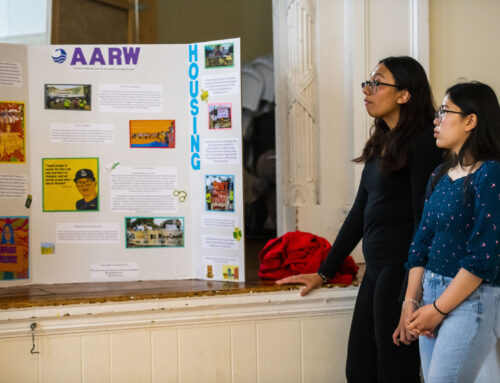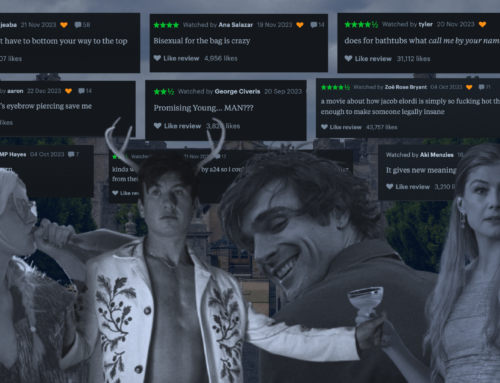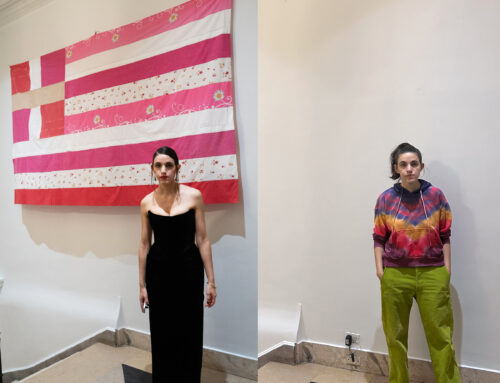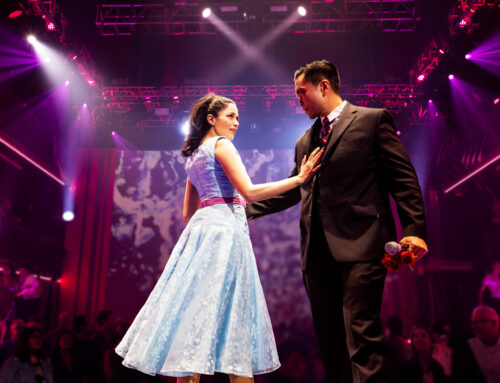From Issue 3: Community.

Archives determine the future. The preservation of our past is selective and careful and has the power to change how we perceive our identities for generations to come. We often mistakenly equate all archives for truth, forgetting to think about who, in what positions of power, has curated the past and who, in turn, has been left out. Venezuelan photographer Verónica Sanchis has been able to subvert the dominant archives—highlighting and preserving the voices of female Latin American photographers through her platform Foto Féminas.
Verónica was always interested in researching and finding Latin American photographers; however, it was challenging—there were no books, records, or resources readily available for her to access. Although she was able to study the works of a few older Latin American photographers, many of whom had passed away, Verónica had an especially hard time finding a community of contemporary Latin American photographers, such as herself.
Moving to New York City to become a library assistant for the International Center of Photography, Verónica’s eyes opened to the power of archival resources. Being exposed to such a large amount of great content was inspiring and moving—allowing Verónica to realize how much female Latin American photographers like herself could gain from having access to their own creative cultural archive.
Foto Féminas was started eight years ago and features a different Latin American female photographer each month. The features are categorized by year, coming together to form a digital archive of photographic pieces and each artist’s biography and artistic statement. When Verónica selects who to feature, she focuses not on how recognized they are or how many accolades they have received, but instead, on their commitment to their work. “I want to see that the photographer is involved in their story,” featuring works that were not simply completed within a few weeks or a month, but a long-term project that shows a photographer’s devotion and passion through the message of their work,” Verónica said.

The featured photographers specialize in all types of photography including documentary, photojournalism, and fine art, as well as highlight a variety of topics through their work, such as social-political issues, family life, and environmentalism. While there are no criteria for the style or genre of work, Verónica has noticed that there are a few common threads that course through the artistic messages of photographers. Particularly prominent are themes of family and Latin American heritage, with family being an important part of Latin American society, identity, and upbringing. For example, works from the photobook Donde No Puedas Verme by Mexican photographer and artist Saraí Ojed were highlighted as the August 2019 Foto Féminas feature. This photo book is dedicated to Saraí’s relationship with her mother and grandmother, showing the intricacies, secrets, and bond between three generations living under the same roof.
Many featured photographers work to highlight the perspectives we are typically unable to see. Chilean photographer Carla Yovaye Pérez was the featured photographer in April 2020. Carla’s photographic essay, Tiempo de Vals, documents male prostitutes in Santiago de Chile. Verónica expressed that this was an important subject to highlight, considering that whenever prostitution is documented, it is often of female prostitutes shown through a white male gaze. Tiempo de Vals deconstructs a taboo topic, showcasing the realities of masculinity and the sex industry in a poetic, gentle, and non-sexualized manner.
Ana María Arévalo Gosen is another featured photographer on Foto Féminas. She is a Venezuelan photographer who is dedicated to storytelling, particularly telling the stories of her home country. Her series, Días Eternos, is an intimate look inside female prisons in Venezuela. Through her photographs, Ana María reveals the crowded and poor conditions of these prisons, while capturing the individuality of each female prisoner—showing them as mothers, sisters, daughters, and ultimately, humans.


In a continued effort to break through taboo subject matter, Dominican photographer Ana Espinal documents menstruation through her series “A Part of Me,” featured on Foto Féminas in May 2020. Ana creates beautiful representations of menstruation, a topic that is so rarely explored in visual arts. Through red rose petals and artful depictions of blood, Ana emphasizes the importance of the menstrual cycle in our health, well-being, and society.
The photographers on Foto Féminas come together to showcase the power of their perspectives, uncovering important messages that no one else would be able to grasp and depict in the same manner. In addition to the monthly features of female photographers, Foto Féminas also has a library of photobooks, which help further the resources visitors and photographers can access when visiting the platform.
Foto Féminas is also a vibrant community of hundreds of Latin American female photographers. Verónica shared that many photographers have told her that they use her platform to connect with and find new photographers to work with, befriend, and become familiar with. Through the Foto Féminas Instagram, Verónica hosts Instagram takeovers in which photographers lead conversations about their work. During the quarantine period of COVID-19, Foto Féminas’ photographers would host a different talk on Instagram each day, giving them a space to share and connect with other community members, especially as they were all being affected by the virus.
Beyond the digital platform, Foto Féminas has been able to showcase its photographers’ artworks on an international scale through exhibitions, installations, and in photo festivals. In 2015, Foto Féminas had its first exhibition in Guatemala and since then, it has hosted or been a part of galleries in Peru, Chile, Mexico, and China.

Foto Féminas is also the subject of photographic talks. Having held discussions in places such as NYC, London, Argentina, and Ecuador about her organization, Verónica continues to spread her mission across the world and reminds audiences of the importance of promoting and preserving the work of marginalized identities in photography.
“As a photographer, I realized we really needed to have a community. Even if we live in different countries, [an online community is] still a way [to] reach somebody or learn from seeing someone’s work. Especially when you’re a photographer or an artist, you really need to have a community,” Verónica said.
Foto Féminas is the community that Verónica had not been able to find as a young photographer but one that she built instead. It was never that Latin American female photographers didn’t exist—it was that they were never given the amplification and the mainstream attention they deserved. Now, Foto Féminas not only gives female Latin American photographers a safe space and way to bond with their peers but also serves as an important archival record of their work, to remember and appreciate forever.



